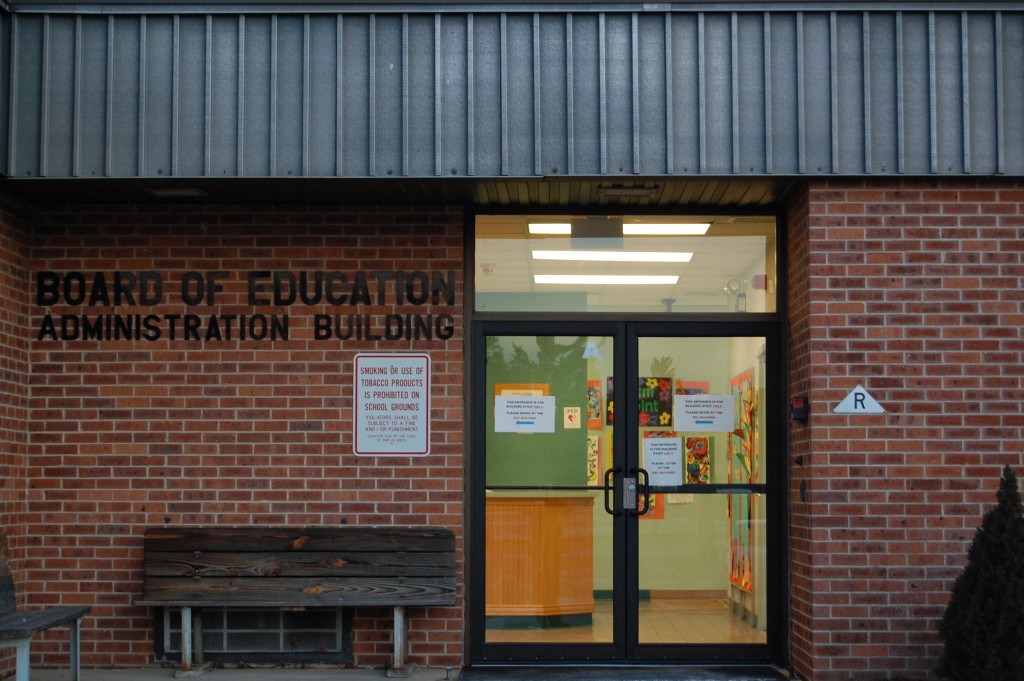Brick school officials have sounded an early warning signal on the potential for staff reductions next school year due to state budget cuts.
“I hate starting off with doom and gloom, but our budget process the last few years has been dire,” Superintendent Thomas Farrell said at a recent meeting of the Board of Education. “We have an additional loss of state aid once again, and this loss of state aid is cumulative.”
Since a school funding reform law known as S-2 was signed by Gov. Phil Murphy in 2018, the product of a deal between the governor and former Senate President Steven Sweeney, Brick has seen a cumulative loss of $22 million in funding for the district. The state contends, through its formula, that Brick residents do not pay enough in property taxes to support its school system and state aid should be cut as a result. District officials have long decried the formula, and have participated in legal action to obtain its algorithm in order to make a case for the restoration of aid. The law calls for seven years of funding cuts and mandatory property tax increases to make up for the losses. But even in a case where maximal tax increases were to be implemented, the district would still find itself in the red – a ballooning problem compounded this year by inflation.
|
|
Recently, school officials have begun charting out the district’s spending plan for the 2023-24 school year, which is typically presented in the spring and adopted by the board following a public hearing.
“This process will most likely result in the transfer of staff, the non-renewal of staff and possible a reduction in force,” Farrell said, adding that the district hopes to achieve staff reductions through retirements and general attrition rather than layoffs, though layoffs may be on the table.
“We anticipate the loss of positions once again, however similar to previous years, it is our hope that retirements and attrition will play integral parts in minimizing job losses,” he said.
Farrell said the district would notify non-tenured teachers that their contracts would not be renewed by May 15. Staff transfers would occur later.
“S-2 has deeply impacted our already-underfunded district,” he said. “With every cut made, we’re doing our best to minimize the impact on our students and our staff. We’re grateful for all of our staff contributions and appreciate their understanding and patience as we move through this difficult process. We are looking at all avenues that are in the best interests of our students and their educational program.”
Exacerbating budgetary woes this year is the rate of inflation, which has outpaced the district’s ability to raise property tax rates. The 2 percent cap, Farrell said, was adopted by the state during a period of low inflation, and districts are now contending with a national inflation rate of 6.4 percent, as calculated at the end of January.
“School districts like us are contending with higher costs for classroom materials, transportation, gas and fuel, electricity, and salaries and benefits,” said Farrell, advising board members that collective bargaining agreements governing teacher salaries provided an average annual increase of 3.3 percent last year.
“This is the perfect storm, unfortunately, and we need the state’s help,” he said. “There’s a paradox in the state’s funding formula where it doesn’t add relief, nor afford a mechanism for districts such as Brick – which are way under adequacy by $23 million – that have had state aid reduced substantially.”
Since S-2 was implemented, Brick has lost 49 percent of its state funding, representing a number that is equivalent to a staggering 40 percent of the total budget five years ago, according to officials. Meanwhile, property taxes have crept upward as residents have continued to struggle with the everyday cost of living.
“The state has short-changed too many towns for too long, and Brick Township is one of them,” said board member Michael Blandina. “We need to keep that fight up. We need the state to step up and do what they need to do, and not just shift the money wherever they’re shifting it – and give us our fair share, which they’re not.”
Brick’s budget for the current 2022-23 school year is $163,322,838. The board, which received a one-time influx of funding last year, increased property taxes by 0.8 percent to stay within the 2 percent expenditure cap. Out of the $163 million budget, $118,333,977 was supported by Brick residents through property taxes.

Advertisement

Police, Fire & Courts
South Toms River Man Charged in Violent Murder of Wife

Police, Fire & Courts
Toms River Man, 36, Charged With Failing to Register Under Megan’s Law









